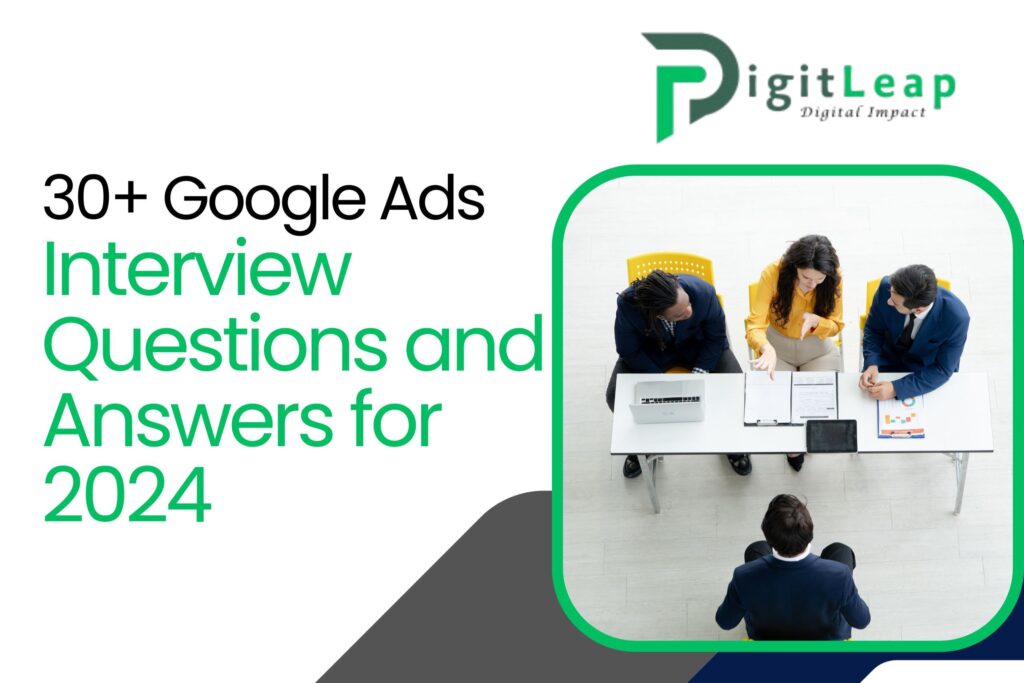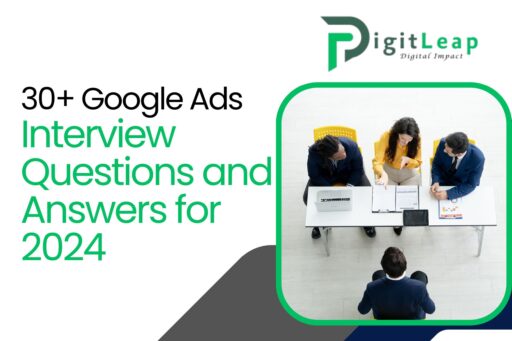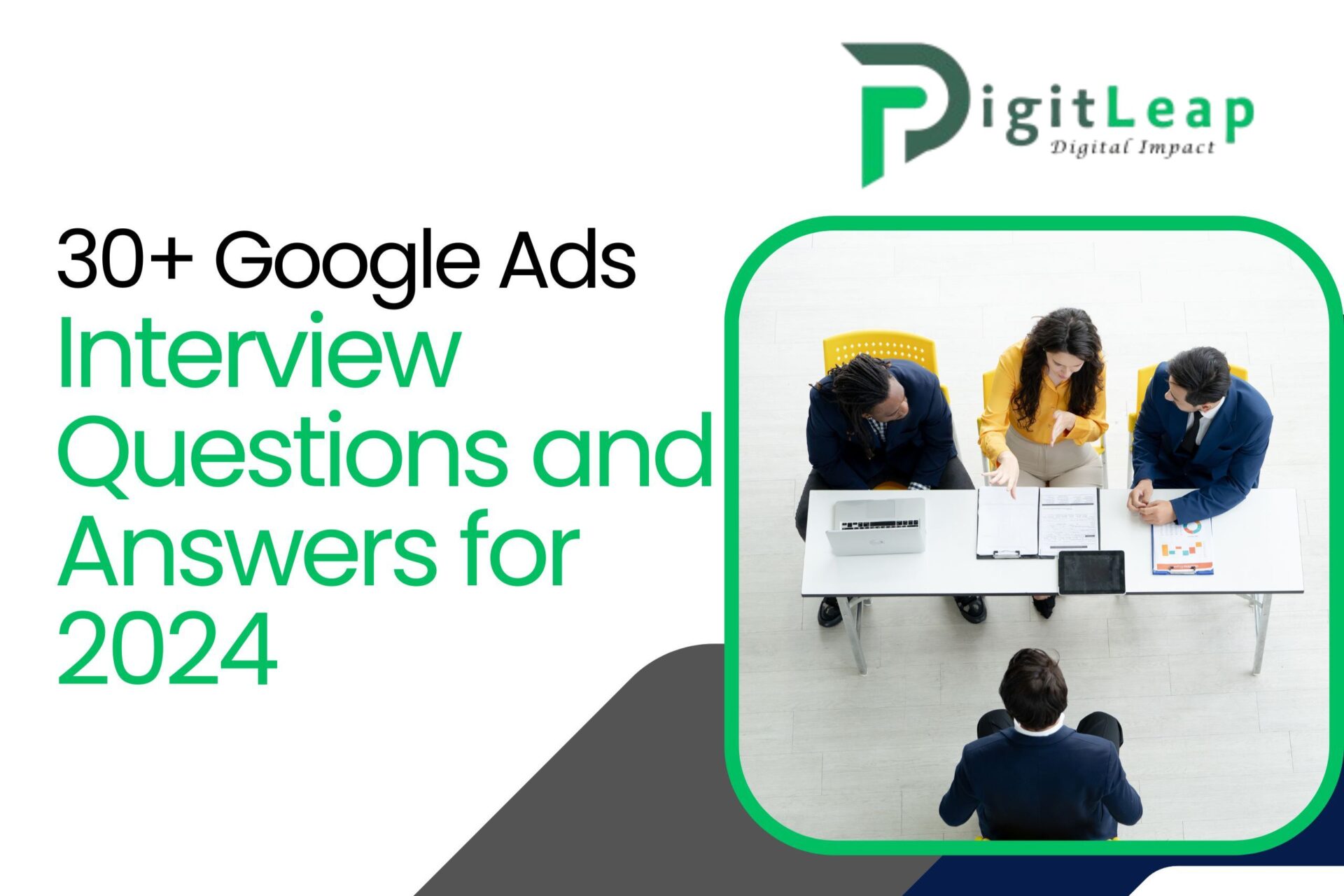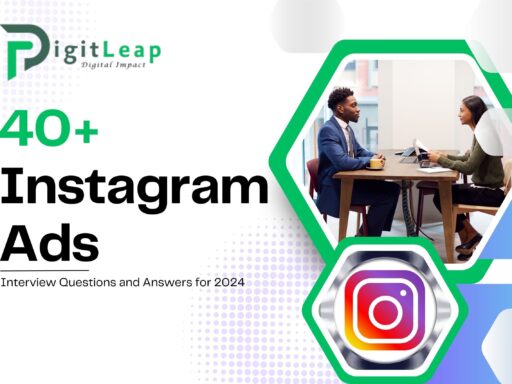30+ Google Ads Interview Questions and Answers for 2025: Your Friendly Guide to Success
Preparing for a Google Ads interview in 2025 can feel overwhelming, but understanding the key concepts can boost your confidence and set you apart. Whether you’re new to digital marketing or an experienced advertiser, this guide offers 30+ interview questions with clear, humanized answers to help you ace your next interview.

General Google Ads Questions
- What are Google Ads, and why are they important?
Answer: Google Ads is a platform that allows businesses to create and display ads on Google Search, YouTube, and other partner sites. They are crucial because they help drive targeted traffic, boost brand awareness, and generate measurable ROI. - How do Google Ads work?
Answer: Advertisers bid on keywords, and when users search for those terms, their ads may appear in the search results. The ad’s position depends on factors like bid amount, ad quality, and expected impact from extensions and other formats. - What is the difference between CPC and CPM?
Answer: CPC (Cost Per Click) means you pay each time a user clicks your ad, while CPM (Cost Per Mille) charges per 1,000 ad impressions. CPC is ideal for direct response campaigns, and CPM is often used for brand awareness. - Explain the concept of Quality Score.
Answer: Quality Score is Google’s rating of the relevance and quality of your keywords and ads. It is based on factors like expected CTR, ad relevance, and landing page experience. A higher Quality Score can lower costs and improve ad positions. - What is Ad Rank, and how is it calculated?
Answer: Ad Rank determines your ad’s position in the auction. It is calculated using your bid amount, Quality Score, ad extensions, and the expected impact of your ad formats. Essentially, it’s a measure of both cost and quality.
Campaign Setup and Management
- How do you set up a new campaign in Google Ads?
Answer: Start by choosing your campaign objective (like sales or leads), select the campaign type (Search, Display, etc.), set your target audience, define your budget and bidding strategy, and create your ad groups with relevant keywords and ad copy. - What is the purpose of using ad extensions?
Answer: Ad extensions provide additional information (like phone numbers, location, and site links) alongside your ad, making it more informative and attractive. They can improve your CTR and overall ad performance. - How do you structure your account for effective management?
Answer: Organize your account by creating separate campaigns for different products or services, and within each campaign, use tightly themed ad groups. This structure makes it easier to optimize and track performance. - What is remarketing, and how do you implement it in Google Ads?
Answer: Remarketing targets users who have previously visited your website. You implement it by adding a tracking pixel to your site and creating custom audiences to show tailored ads to these users, encouraging them to return. - How do you decide between manual and automated bidding?
Answer: Manual bidding gives you control over each bid but requires more effort, while automated bidding uses machine learning to optimize for your goals. If you have time to manage bids, manual can work well; otherwise, automated options like Target CPA are efficient and effective.
Keyword Strategy and Ad Copy
- How do you conduct keyword research for a Google Ads campaign?
Answer: Use tools like Google Keyword Planner, SEMrush, or Ahrefs to discover relevant keywords. Look for terms with good search volume and low to moderate competition, and focus on long-tail keywords for more specific targeting. - What are negative keywords, and why are they important?
Answer: Negative keywords prevent your ads from showing on irrelevant searches. They help you save budget by filtering out unwanted traffic and ensuring your ads reach a more qualified audience. - How do you write effective ad copy?
Answer: Create clear, compelling copy that highlights unique benefits and includes a strong call-to-action. Use keywords naturally and ensure the ad matches the landing page content for consistency. - What is A/B testing in the context of ad copy?
Answer: A/B testing involves creating two or more variations of your ad copy to see which performs better. This helps refine your messaging to maximize engagement and conversion rates. - How do you measure the success of your ad copy?
Answer: Monitor metrics like CTR, conversion rate, and Quality Score. High performance in these areas indicates that your ad copy resonates well with your target audience.
Optimization and Performance
- How do you optimize your ads after launch?
Answer: Regularly review performance metrics, adjust bids, refine targeting, test new ad variations, and update negative keywords. Continuous optimization helps improve your ad’s efficiency over time. - What are some common reasons for a low Quality Score?
Answer: Low Quality Score can result from irrelevant ad copy, poor landing page experience, low expected CTR, and lack of proper keyword alignment. Addressing these areas can help boost your score. - How do you handle underperforming ad groups?
Answer: Analyze performance data to identify issues, then adjust your keyword selection, update your ad copy, or refine your targeting. Sometimes, it’s best to pause underperforming ad groups and reallocate budget to higher-performing ones. - How important is landing page quality in Google Ads?
Answer: Landing page quality is crucial; it directly impacts user experience and conversion rates. Ensure that the landing page is relevant, fast, and user-friendly, and that it matches the ad’s promise. - What role do analytics play in managing your campaigns?
Answer: Analytics help track performance, identify trends, and guide optimization decisions. Tools like Google Analytics and Search Console are essential for measuring the impact of your ads and making data-driven improvements.
Advanced Strategies
- What is the benefit of using dynamic ads?
Answer: Dynamic ads automatically adjust content based on user behavior and preferences, providing a personalized experience that can lead to higher engagement and conversion rates. - How do you use audience segmentation to enhance ad performance?
Answer: Segment your audience based on demographics, interests, and behavior. Tailor your ad copy and creatives for each segment to ensure the message resonates, leading to improved engagement. - What is the role of remarketing lists for search ads (RLSA)?
Answer: RLSA allows you to customize search ads for users who have previously visited your site. This targeted approach helps boost conversions by reaching a warm audience with tailored messages. - How do you manage multi-channel advertising with Google Ads?
Answer: Integrate your campaigns with other digital channels by maintaining consistent messaging and monitoring performance across platforms. A unified strategy ensures that all channels complement each other. - How can you leverage automation in Google Ads?
Answer: Use automated bidding strategies like Target CPA or Target ROAS to optimize your bids in real time. Automation tools can also help with ad rotation, budget adjustments, and performance tracking.
Personal and Behavioral Questions
- How do you stay current with changes in Google Ads?
Answer: I regularly follow industry blogs, participate in webinars, and engage with online communities. Continuous learning is key to keeping up with new features and best practices. - Can you describe a time when you significantly improved a campaign’s performance?
Answer: In one campaign, I noticed a low CTR and high CPC. I reworked the ad copy, refined my keyword targeting, and added new negative keywords. These changes led to a 40% increase in CTR and a 25% decrease in CPC within a few weeks. - How do you manage stress during high-pressure campaigns?
Answer: I prioritize tasks, break down larger projects into manageable steps, and maintain clear communication with my team. Regular breaks and staying organized help me manage stress effectively. - What do you enjoy most about working with Google Ads?
Answer: I love the constant evolution and challenge. Every campaign is a chance to learn something new, experiment with creative ideas, and see tangible results that directly impact business growth. - How do you handle constructive criticism regarding your campaigns?
Answer: I welcome feedback as an opportunity to improve. I listen carefully, analyze the feedback objectively, and make adjustments to enhance campaign performance. Constructive criticism is vital for continuous improvement. - What steps do you take to ensure your campaigns align with overall business goals?
Answer: I start by clearly defining campaign objectives and regularly reviewing performance metrics. I ensure that each campaign ties back to broader business goals, such as increasing conversions or boosting brand awareness. - How do you collaborate with other teams to improve campaign outcomes?
Answer: Collaboration is key. I maintain open communication with teams such as content, design, and sales to ensure that our efforts are aligned. Regular meetings and shared performance reports help us work together effectively. - What motivates you in your work with Google Ads?
Answer: I’m motivated by the challenge of driving real business results and the opportunity to constantly learn and adapt. Seeing how small changes can lead to big improvements is incredibly rewarding.
Final Thoughts
These 33+ questions and answers cover a broad range of topics essential for mastering Google Ads in 2025. Whether you’re tackling strategy, technical details, or behavioral insights, being well-prepared and authentic in your responses will help you excel in your interview. Keep learning, stay curious, and remember that each campaign is an opportunity to improve and innovate.






